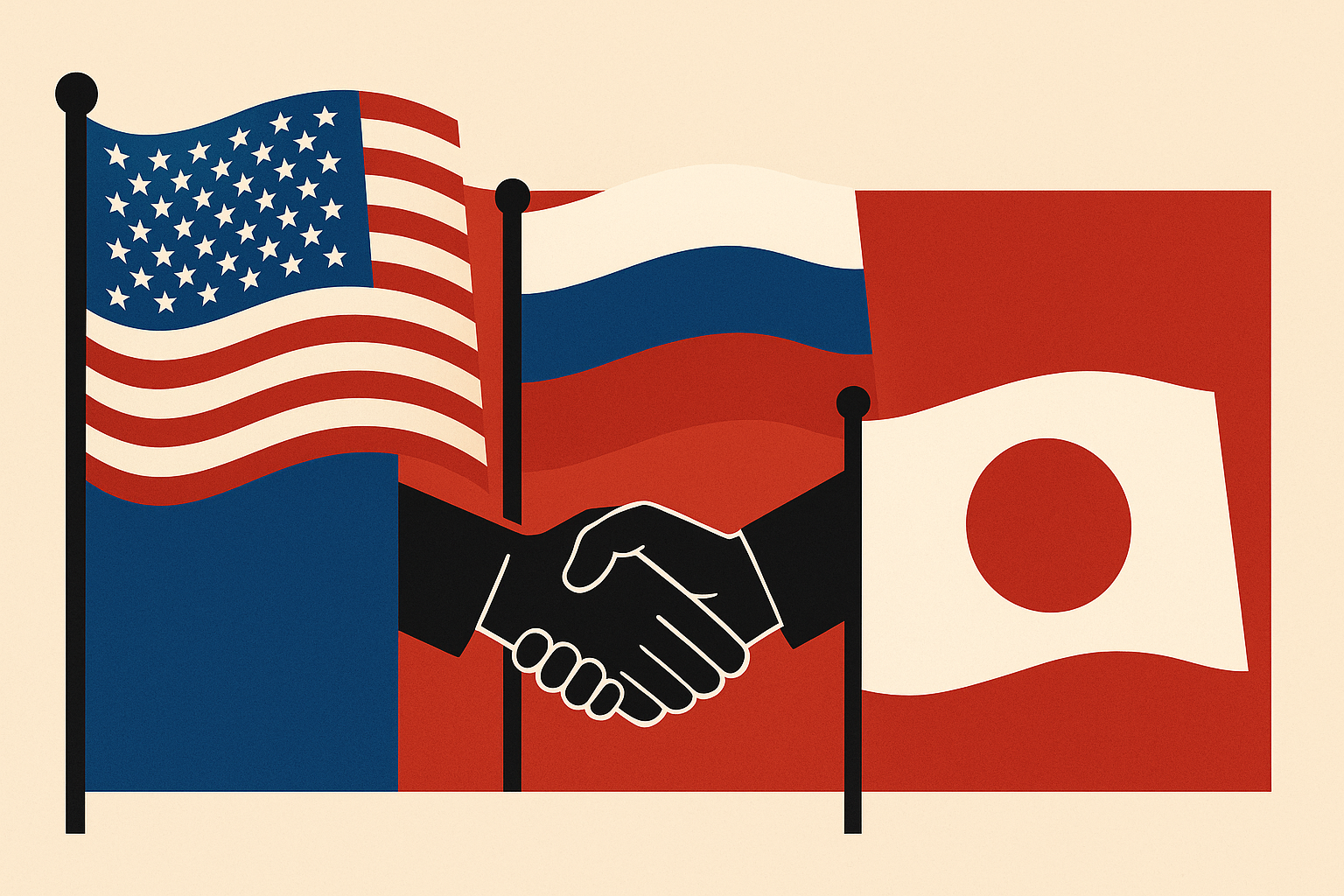Japan’s Diplomatic Calculus: A New Turn in the Ukraine Conflict That Investors Can’t Ignore
As the Ukraine-Russia conflict enters a complex new chapter, a fresh diplomatic overture from Japan may hint at broader geopolitical and economic recalibrations in the Asia-Pacific and global markets. Following recent dialogue between the United States and Russia, Tokyo has expressed optimism about potential diplomatic breakthroughs—an unusual public stance from one of the U.S.’s staunchest allies in Asia.
For investors, this isn’t just about foreign policy—it’s about global market confidence, energy security, and the future of international trade dynamics.
Why This Matters for Investors
Tensions surrounding the Russia-Ukraine war have weighed heavily on global markets for over two years, disrupting everything from energy prices to grain exports. A meaningful breakthrough, even the suggestion of one, holds the potential to ease inflationary pressures, stabilize commodities, and reorient diplomatic efforts—particularly in Asia, where Japan plays a vital geopolitical and economic role.
Japan’s Chief Cabinet Secretary Yoshimasa Hayashi stated on May 20 that the government is “closely watching developments” and hopes that “constructive outcomes” arise from the recent U.S.-Russia talks. Tokyo’s response is especially significant, given its alignment with G7 sanctions and historical wariness of Russian military ambitions.
Diplomatic Signals with Economic Ripples
According to Nippon.com, Japan’s latest remarks reflect not just cautious optimism, but a subtle repositioning that could affect energy markets, regional defense contracts, and multilateral trade negotiations.
Japan’s interests are deeply entangled in the stability of the global energy supply chain. As a major importer of liquefied natural gas (LNG) and oil, a de-escalation in Eastern Europe would potentially ease shipping bottlenecks and bring down global energy prices—especially impactful in an era where Japan is slowly reopening its nuclear energy agenda.
Moreover, Japanese defense stocks such as Mitsubishi Heavy Industries (TYO: 7011) have rallied on increased military spending in response to global threats. Any real peace movement could trigger a correction in this space, while redirecting capital toward infrastructure and green energy.
Global Trade and Regional Stability
A thaw in Ukraine could encourage the reopening of Eastern European logistics corridors, including those vital for agriculture, chemicals, and energy transit. This would be a net positive for Asian economies dependent on stable global trade flows.
In particular, Japanese conglomerates with heavy exposure to European markets—Hitachi Ltd. (TYO: 6501), Toyota Tsusho (TYO: 8015)—stand to benefit from the easing of political risks and currency fluctuations.
Furthermore, Japan’s role in Asia-Pacific trade agreements like the Comprehensive and Progressive Agreement for Trans-Pacific Partnership (CPTPP) may be re-energized as diplomatic bandwidth shifts from crisis management back to economic collaboration.
Analyst Commentary & Forecast
According to Goldman Sachs analysts, a major diplomatic shift in the Ukraine crisis could lower Brent crude forecasts by as much as $10 per barrel over the next two quarters. This would be especially favorable to Asian importers like Japan and India.
Meanwhile, BlackRock’s Global Outlook issued earlier this quarter emphasized the geopolitical risk premium priced into global equities. A détente could release upward momentum in currently undervalued sectors, especially cyclical and industrial names.
Key Investment Insight
Investors should watch Japan’s diplomatic positioning as a leading indicator of broader G7 sentiment and energy market trends. If Tokyo begins to advocate for diplomatic engagement more vocally, it could signal a shift from confrontation to containment—and open opportunities in energy, logistics, and Asian equities.
Speculative capital may begin rotating out of defense and into transport, energy infrastructure, and industrials. Additionally, easing tensions could reduce volatility in currency markets, especially the yen and euro.
Stay Ahead with MoneyNews.Today
As Japan signals openness to a peaceful resolution in Ukraine, the geopolitical chessboard is shifting—and so is the market. Investors should be proactive, not reactive.
???? Stay informed with MoneyNews.Today—your trusted source for investor-focused news and strategic market insights. Get tomorrow’s market moves today.





